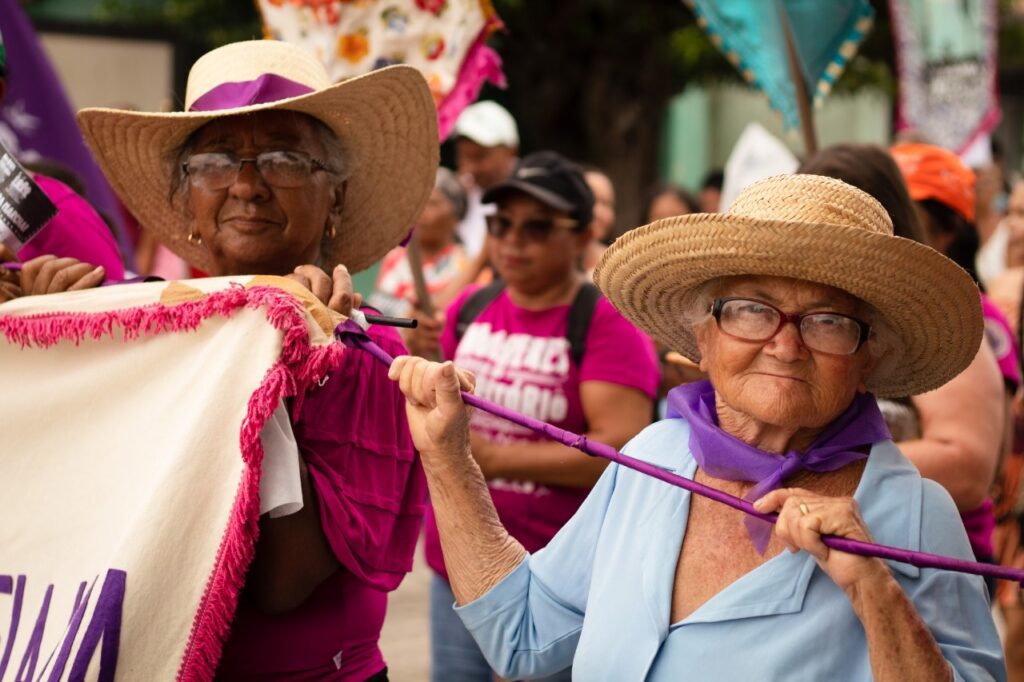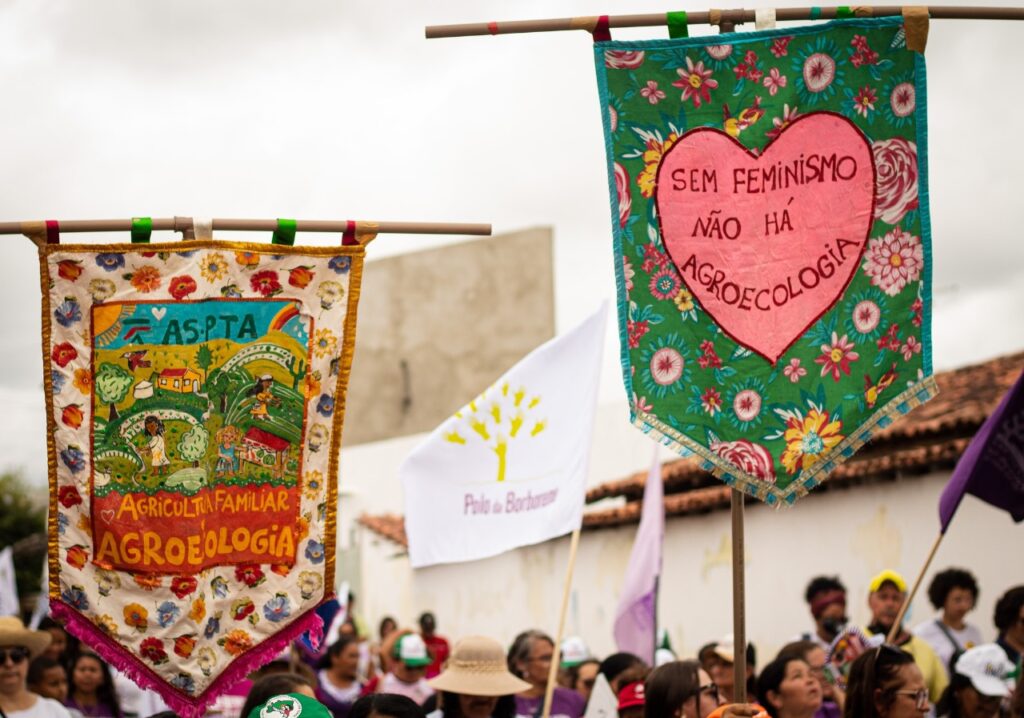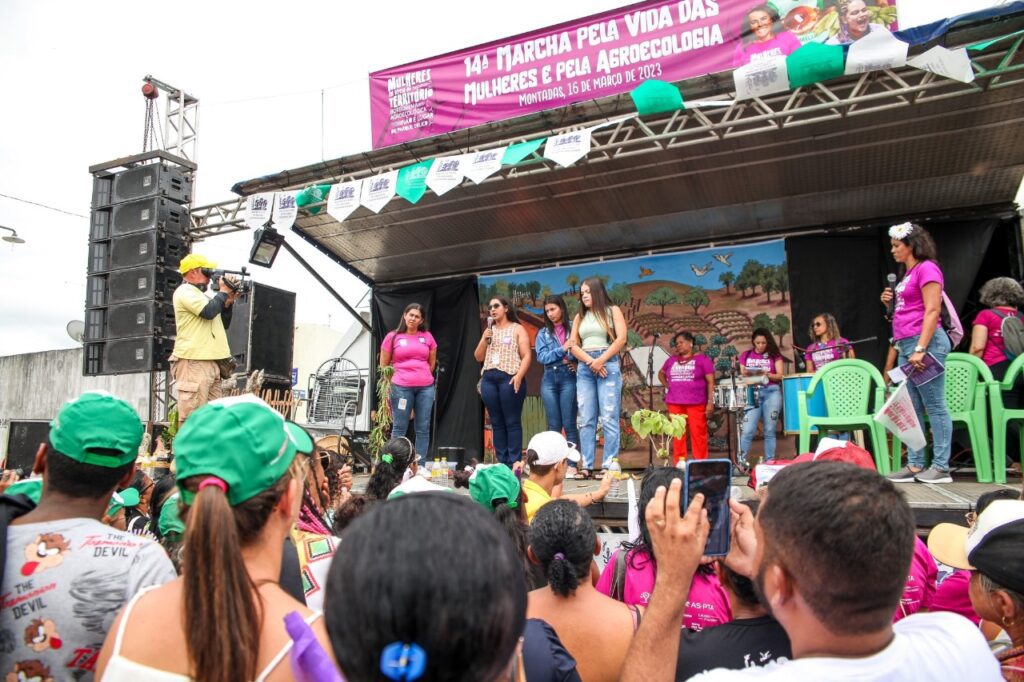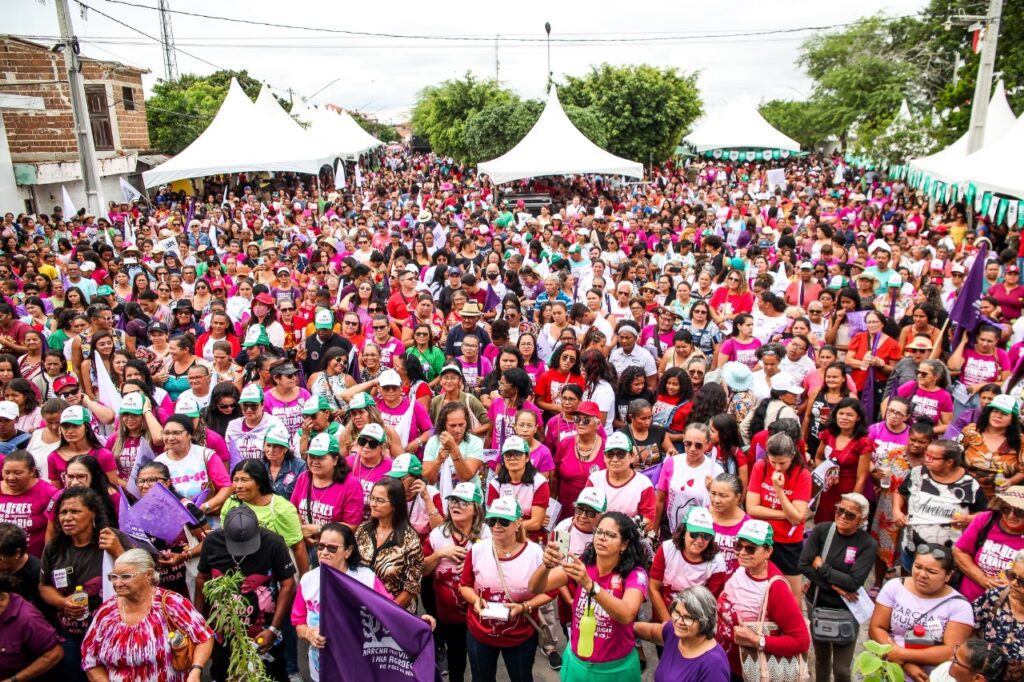
In March 2023, about 5 thousand women marched through the city of Montadas in the region of Borborema (in Paraíba), to raise awareness of the damage that the construction of a wind farm could have on their territories, the environment, their health and the future of family farming. This was the 14th edition of the March for the Lives of Women and for Agroecology. The activity was supported by CESE through its Small Projects Programme.
The arrival of these complexes is one of the greatest threats to the local development project, constructed in the region of Borborema 30 years ago, which today is a territory where agroecology is very deep rooted. There are 12 agroecological markets and five special groceries for the sale of family farming products. This series of initiatives generates income and autonomy for women and young people, and has led to profound transformations in the families’ material conditions, and their food security and sovereignty.
The reality behind wind farms goes far beyond the discourse about clean energy and development propagated by businesspeople and which even appears to be common sense. The disruption to traditional ways of life, abusive contracts, deforestation, mental illness and skin diseases are all consequences described by the family farmers following the arrival of these ventures in the region.
“These large ventures need vast areas of land, wide highways. Our lands are small, from 0 to 10 hectares. If we lose these lands, what will remain for our young people? For food production, which is not only important for the food sovereignty of those who live in the communities, but also for the city, to confront hunger,” declared Roselita Vitor, Coordinator of the Borborema Hub, one of the networks that organizes the march.
According to Roselita, people from the community who have negotiated with the companies have been surprised by abusive clauses forbidding them from even talking to their neighbours about the details of the negotiations. “They are approached individually, with contracts that are automatically renewable for decades,” she pointed out.


During the march, the documentary “Women in defence of the territory: Borborema Agroecology is no place for a wind farm,” was produced. This portrays the impacts of the wind turbines on the lives of the communities – the ceaseless noise, the dust from the propellers, which causes skin problems, anxiety, the risk of electric shocks – and also reveals how the families are approached by the companies.
“Today, many populations in the semi-arid region are experiencing serious health problems. People have had to leave their homes, have lost their farming identities, to go and live in the city, because they aren’t able to live with a wind turbine, which often isn’t even on their property, it’s on their neighbour’s,” Roselita added.
She explained that the struggle of the farmers from the Borborema Hub is for a decentralized renewable energy project. “We would like every farming family to have a solar panel, to produce their own energy, consume what they need and sell the surplus, without having to disrupt our territories, our ways of life, our ways of living and celebrating where we live,” she concluded.



